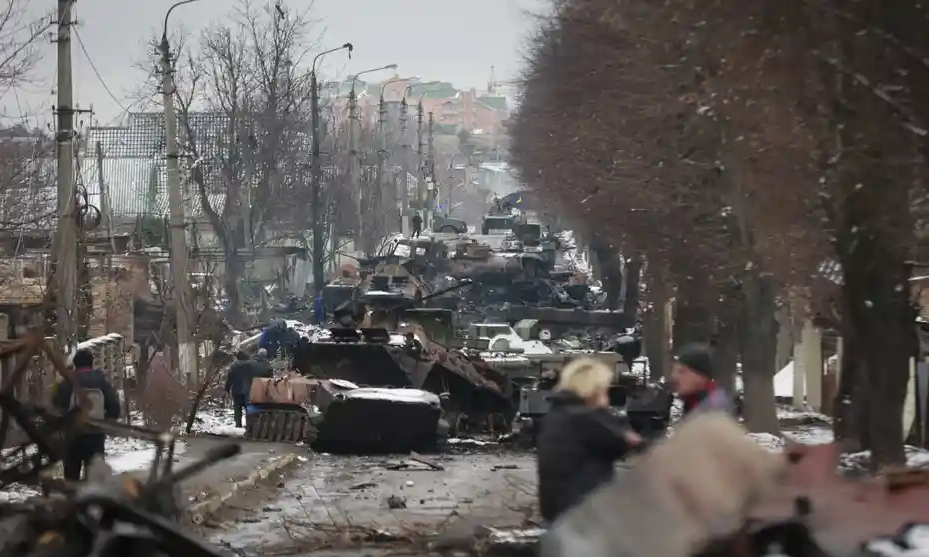Jin Liangxiang, Senior Research Fellow, Shanghai Institute of Int'l Studies
Mar 22, 2022
Arab countries in particular will play an important role as event in the Russia-Ukraine conflict disrupt economic patterns. They may see an opportunity to regain stature in the international arena.

Zhao Minghao, Professor, Institute of International Studies at Fudan University, and China Forum Expert
Mar 22, 2022
China-U.S. relations are feeling the strain of the conflict in Eastern Europe. China does not welcome war, but the United States must abandon its posture of coercion — forcing others to choose sides. Cooperation will be required to restore peace.
Xiao Bin, Deputy Secretary-general, Center for Shanghai Cooperation Organization Studies, Chinese Association of Social Sciences
Mar 17, 2022
China-Russia ties have upper limits, which are defined by the interests of the Chinese people. Relations are constrained to areas that do no harm. No relationship should be allowed to take the people’s interests hostage.
Dong Chunling, Deputy Director, Office of the Center for the Study of a Holistic View of National Security, CICIR
Mar 16, 2022
Two classic conundrums are at play in the Russia-Ukraine conflict, both of which are making the problem worse and could lead to a new cold war. China’s approach provides a way out.

John Gong, Professor at University of International Business and Economics and China Forum Expert
Mar 14, 2022
George Canning, who presided over the British foreign policy in the early nineteenth century, once famously said, “Europe's domain extends to the shores of the Atlantic, England’s begins there.”

Wang Yiwei, Jean Monnet Chair Professor, Renmin University of China
Mar 14, 2022
A look at history reveals why Russia feels threatened by the eastward expansion of the European Union and NATO. The war may end with Ukraine becoming a neutral country that serves as a buffer zone for Russia.

Richard Javad Heydarian, Professorial Chairholder in Geopolitics, Polytechnic University of the Philippines
Mar 12, 2022
Russia’s invasion of Ukraine has been met with sanctions from the West, along with key regional economies in Asia. And Putin’s actions will have major repercussions on Russia’s place in the world, including its previously promising pivot towards Asia.

Lucio Blanco Pitlo III, President of Philippine Association for Chinese Studies, and Research Fellow at Asia-Pacific Pathways to Progress Foundation
Mar 10, 2022
The crisis in Ukraine grows worse as fighting rages on in what is sure to be one of this decade’s defining episodes. Whatever the outcome is, the result will drastically shift the landscape of the international community.
He Wenping, Senior Research Fellow, Charhar Institute and West Asia and Africa Studies Institute of the China Academy of Social Sciences
Mar 08, 2022
The Russia-Ukraine conflict raises uncertainties in negotiations for a renewed Iran nuclear deal. Thorny problems remain. But while there are negatives, there are also opportunities.
Wu Zurong, Research Fellow, China Foundation for Int'l Studies
Mar 08, 2022
Talks between Russia and Ukraine regarding a cease-fire are a first step. However, to resolve the deep-rooted differences and bring about long-term peace and stability in Europe and Russia, talks between Russia and NATO countries must follow.
Back to Top

- China-US Focus builds trust and understanding between the U.S. and China through open dialogue among thought leaders.
- Our Offerings
- Topics
- Videos
- Podcasts
- Columnists
- Research Reports
- Focus Digest
- Stay Connected
-
Thanks for signing up!
- Get the latest stories from China-US Focus weekly.